I was saddened to learn today that Masaaki Imai passed away, as announced this week by the organization he founded, KAIZEN Institute. He was 92.
Kaizen Institute Announces the Passing of its Founder, Masaaki Imai
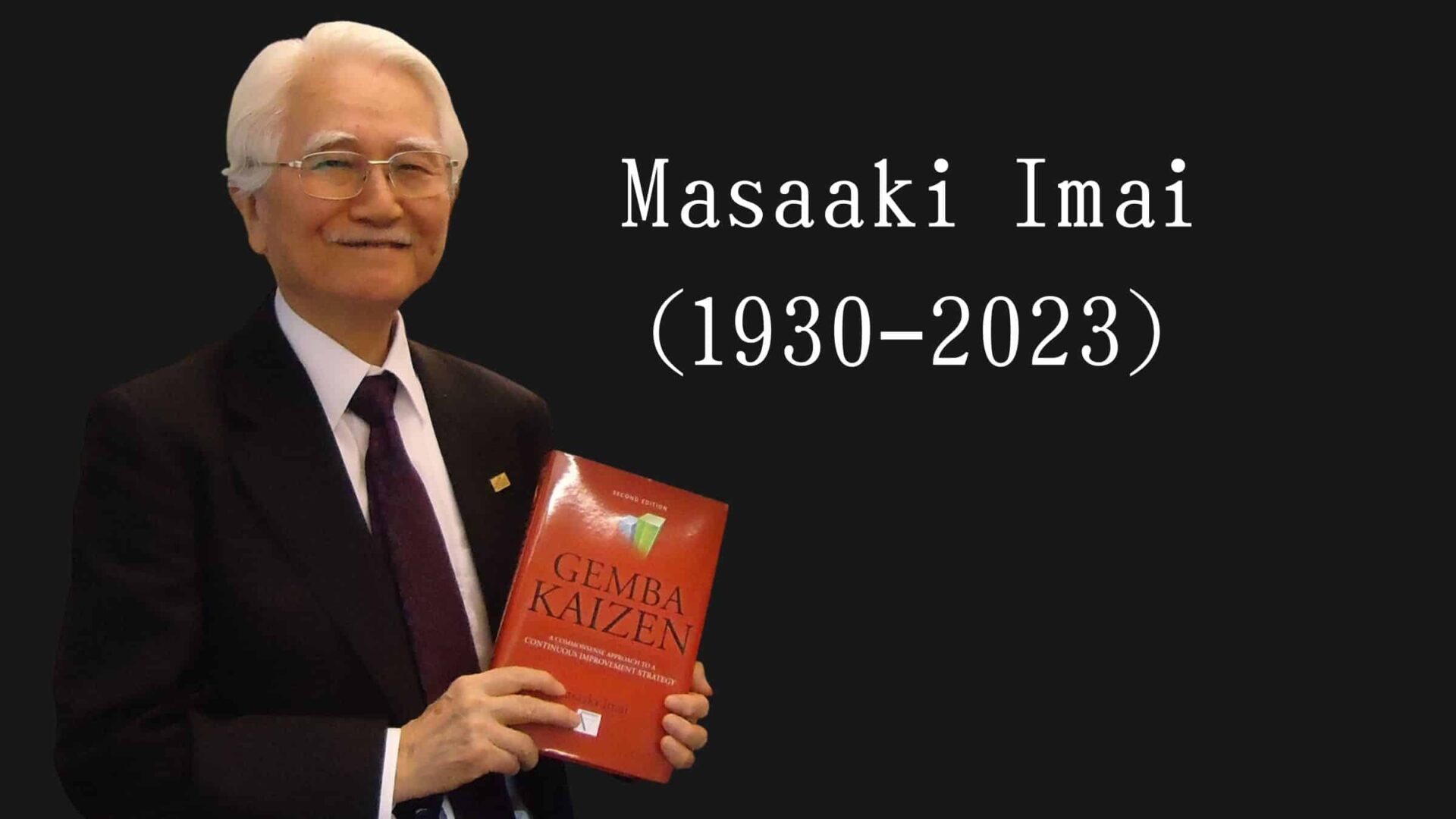
Mr. Imai was well known for his books, including KAIZEN, his follow up Gemba Kaizen, and his latest, Strategic KAIZEN™ (published in 2021). He traveled the world teaching people about continuous improvement.
I'd like to first express my deepest condolences to Mr. Imai's family, friends, and colleagues.
Hear Mark read this post — subscribe to Lean Blog Audio
I had the fantastic opportunity to meet Mr. Imai a few times — once in Seattle when he was visiting and speaking at a healthcare organization, and twice during Japan study tours organized by Kaizen Institute. Thank you for your contributions to the world, Mr. Imai!
My co-author Joe Swartz and I were honored that Mr. Imai agreed to write the foreword to our book Healthcare Kaizen, published in 2012. The introduction for that book was written by Norman Bodek, who passed away in 2020. I'm printing Imai's foreword at the bottom of this post.
Here are some previous posts about Mr. Imai and I'll also share some photos further down, including some I've never shared online.
Here is a nice video of him defining “Kaizen” as everybody improvement, everywhere improvement, everyday improvement — something I wish more people took to heart.
Photos
2012 — Seattle Event

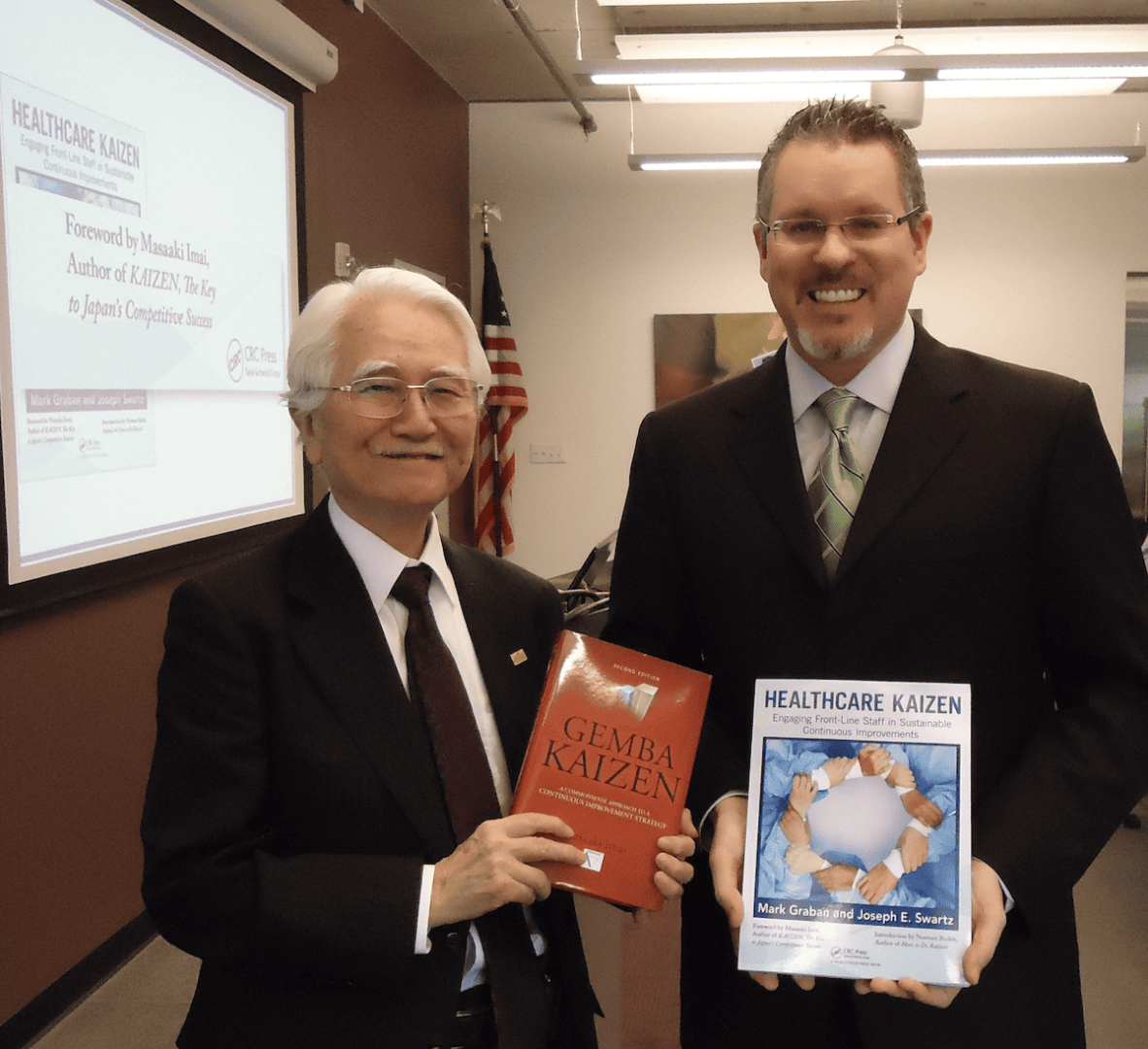
Japan Tour 2012
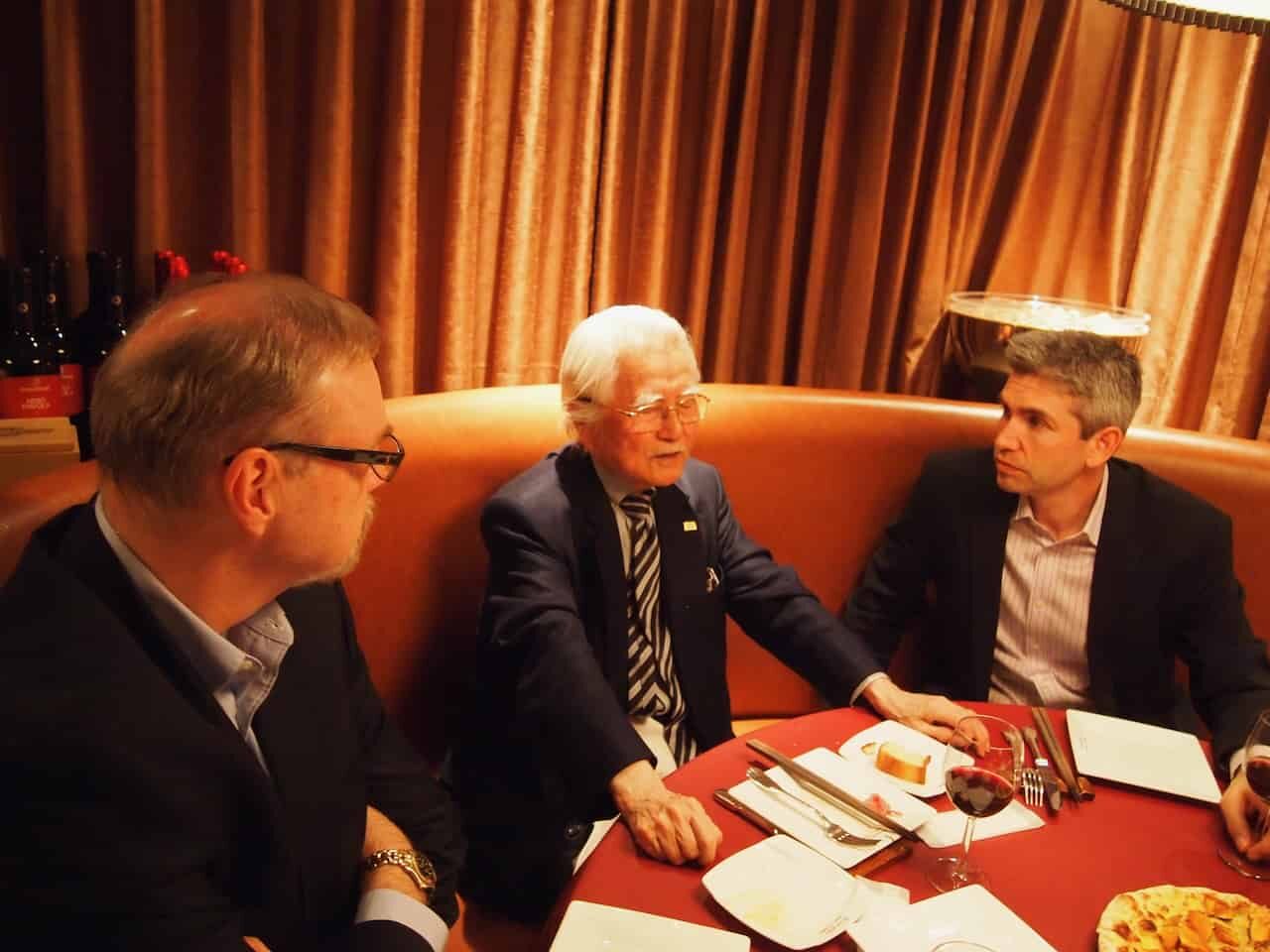
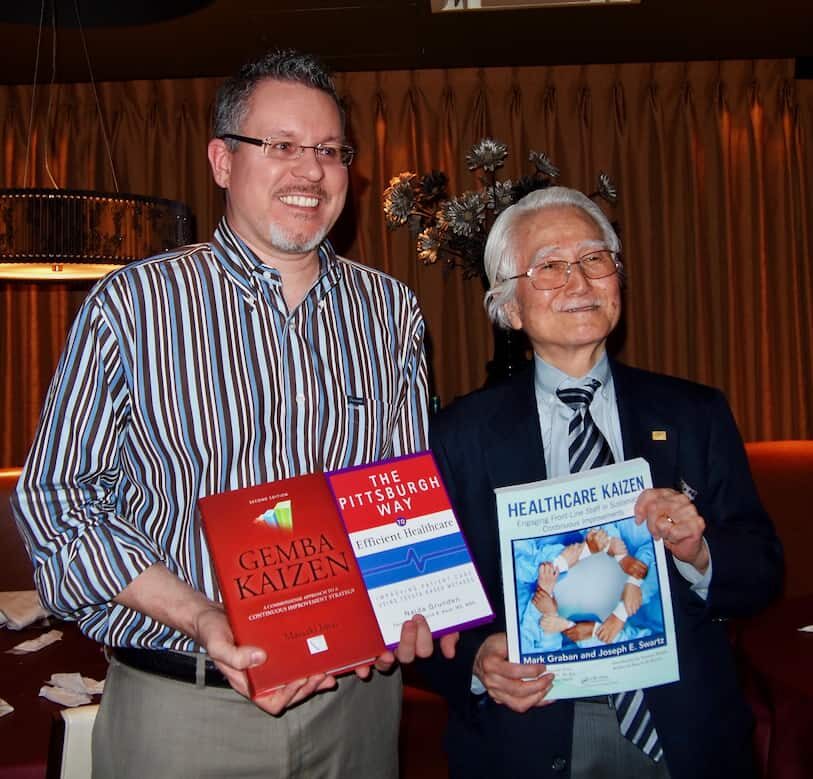
Japan Tour 2014
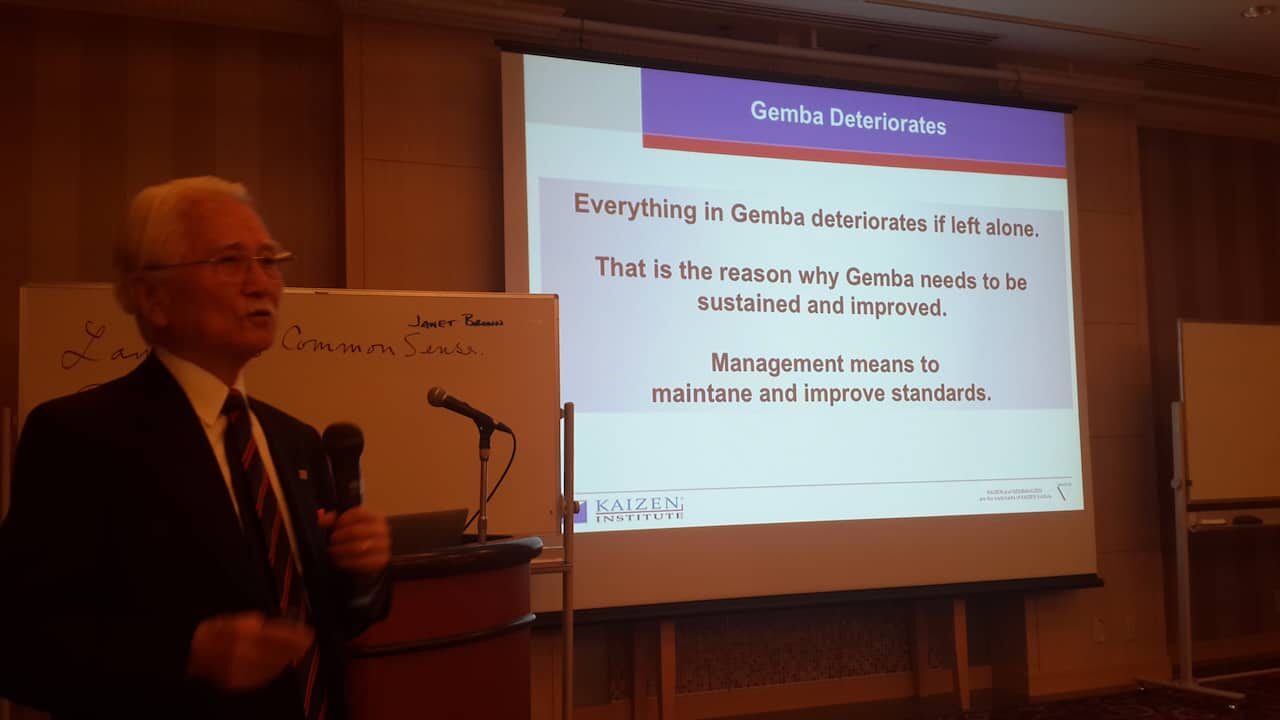
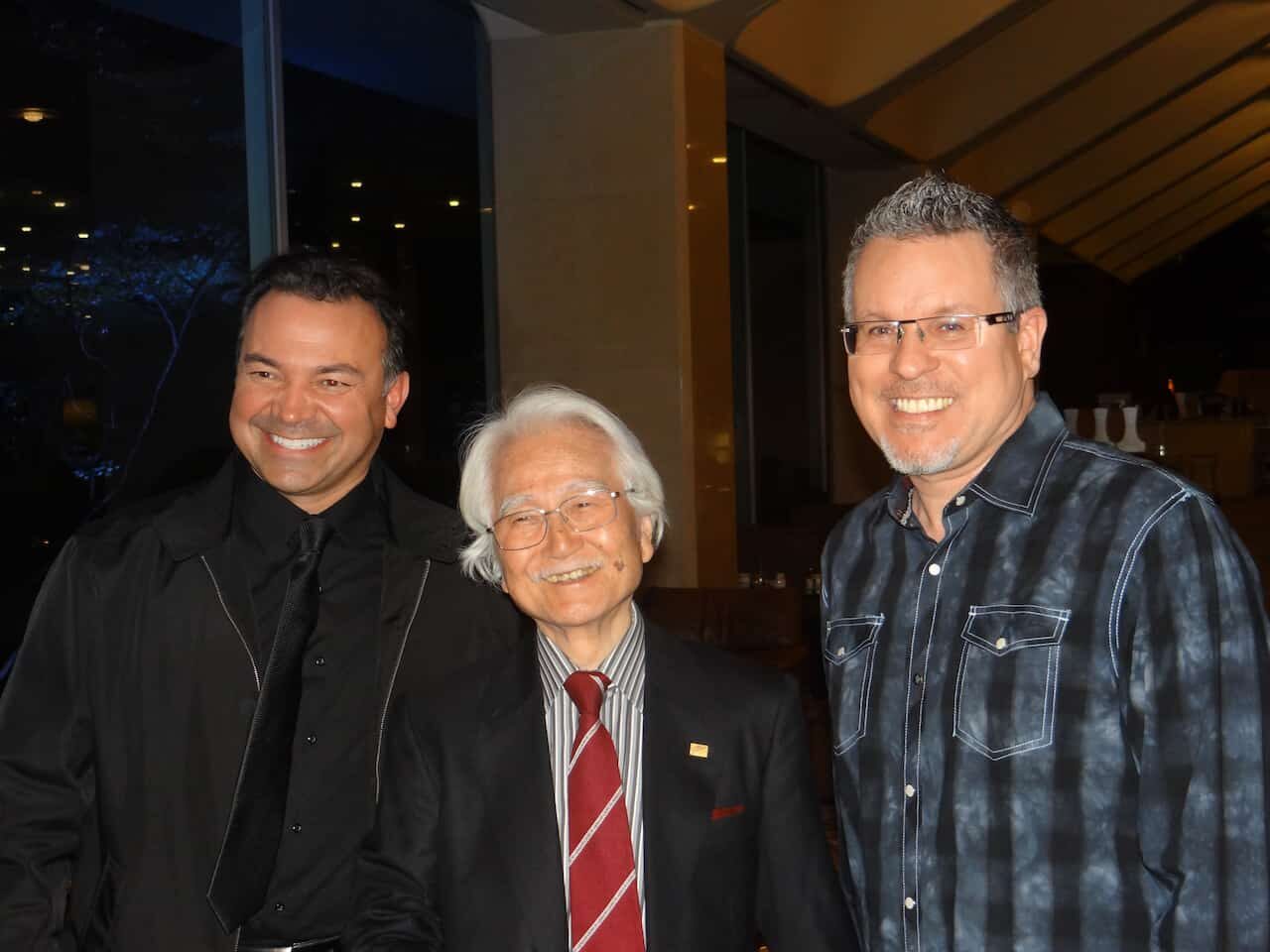

In this last photo, that may or may not have been the time I heard Mr. Imai tell a hilariously self-effacing version of an old joke. Again, imagine him telling this as I paraphrase it (and it's a dated joke in a few ways…)
The Joke
During the Iran revolution, four businessmen were taken captive and were about to be killed by the revolutionaries: An Englishman, a Frenchman, an American, and a Japanese man.
“You all get one final wish before we kill you!”
The Englishman says he wants to sing “God Save the Queen” one last time.
The Frenchman says he wants to have a cigarette and sing the French national anthem.
The Japanese businessman says, “I want to give give one last lecture about Total Quality Management.”
The American stands up and says, “Well, if he wants to do that, my wish is that you kill me first so I don't have to listen to another lecture about Japanese management!”
Imai's Foreword to Healthcare Kaizen
To end on a more serious note, here is the foreword from the book Healthcare Kaizen.
Foreword
By Masaaki Imai, Chairman, Kaizen Institute
In my book KAIZEN, The key to Japan's Competitive Success (McGraw-Hill, 1986), I ended with the following words:
“It is my sincere hope that we will be able to overcome our “primitive” state and that the Kaizen strategy will eventually find application not only in the business community, but also in all institutions and societies all over the world.”
Look over the last 25 years since its publication, I am profoundly frustrated with the slow pace at which Kaizen strategy has been embraced by the business community. On the other hand, I am encouraged to note that Kaizen is rapidly gaining momentum in the non-business institutions like healthcare, services, and government.
I believe that Kaizen is essentially a “human business.” Management must meet diversified requirements of its employees, customers, stakeholders, suppliers, and its community. In this sense, the healthcare profession can probably best benefit from Kaizen since its central task is people. I am honored to write a foreword to this book by Mark Graban and Joseph Swartz.
Taking this opportunity, I wish to mention a few reminders to successfully embrace the Kaizen strategy.
- Embracing Kaizen is a long-term journey. It is not a flavor of the month and requires the cultural change, commitment and self-discipline that needs to be sustained over many decades until they become routine business practices.
- Top management commitment is the only way to successfully embrace Kaizen, without which nothing else you do will matter.
- We need to approach our daily business in two phases: one is to maintain the status quo, in which the standard (the best way to do the job) is established and followed. This process is called maintenance and requires dedicated management effort to sustain it, but it is often overlooked or belittled.
The second phase is Kaizen, which means to find a better way and revise the current standard. Thus, to maintain and improve the standard becomes the main task of management.
- My definition of Lean is to employ minimum resources for the maximum benefits. Therefore, Kaizen leads to Lean and Lean leads to green. Kaizen is the most environmentally-friendly approach.
- Welcome problems. The more problems, the better, since we have more Kaizen opportunities. We only need to establish priorities in dealing with problems. When the problem is correctly identified, the project is halfway successful.
- One of the best ways to identify problems is to observe the flow of operations. In the medical institutions, there are many types of flows such as information, physical movement of patients and families, medicines and supplies. Wherever and whenever the flow is disrupted, there is a Kaizen opportunity. A majority of disruptions of the flow can be easily detected and solved with common sense and do not require sophisticated technologies.
- Remove the barriers between professionals and laymen.
I sincerely hope that you will find your Kaizen journey to be challenging, but most rewarding.
It was an honor and a privilege to meet Mr. Imai, to learn from him, and to share a few meals with him in Japan. Thank you for everything.
Please scroll down (or click) to post a comment. Connect with me on LinkedIn.
Let’s work together to build a culture of continuous improvement and psychological safety. If you're a leader looking to create lasting change—not just projects—I help organizations:
- Engage people at all levels in sustainable improvement
- Shift from fear of mistakes to learning from them
- Apply Lean thinking in practical, people-centered ways
Interested in coaching or a keynote talk? Let’s start a conversation.









